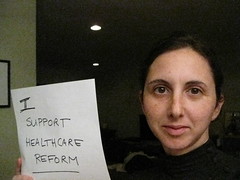15 December, 2009
09 December, 2009
Modern contraceptives in India

Recently, Birth control ring NuvaRing was recently (December2009) launched in India by Organon (India).
Organon (India), incorporated in the year 1967, is a global biopharmaceutical company. Earlier known as Infar (India), it got its present name on Dec. 31, 2002. The company is part of the American pharmaceutical company Schering-Plough, which is a world class provider of human healthcare prescription, consumer and animal health products. It is among the leaders in the areas of gynecology, fertility, neuroscience and anesthesia."NuvaRing heralds a new era in contraception in the Indian market,” said KG Anathakrishnan, managing director of Organon (India) Limited
NuvaRing is a flexible, transparent ring containing hormones that are dispersed throughout the ring’s core and absorbed through the vaginal lining directly into the bloodstream, when inserted. The exact positioning of the ring is not critical for it to work. Additionally, the ring works, like ‘the Pill’, by inhibiting ovulation. In order to prevent pregnancy for a full month, NuvaRing must be inserted and left in place for three consecutive weeks. After a one week ring-free interval, a new ring must then be inserted in order to have continued contraceptive effect.
Introduction of Nuvaring(r) in India allows another flexible choice for female contraception.According to recent National Family Health Survey (NFHS-3) survey (India), despite availability of various modern contraceptive methods, modern contraceptive usage is limited to less than 50 per cent of women under age 50 years.
08 December, 2009
Social Media in Public Health
A slidedeck describing how social media can be used for Public Health.

29 November, 2009
Empathy in Medical Education
--
This "Mendley" created by Anne Marie Cunningham of Cardiff, United Kingdom
It lets you create an online collection of research papers
Organize, share, and discover research papers! Mendeley is a research management tool for desktop & web. You can also explore research trends and connect to other academics in your discipline.
16 November, 2009
13 November, 2009
Healthcare reform supporters from Rural Medical center

After all the "interested parties" have had their say, i came across a much more balanced view of the healthcare reform scenario and the House Bill 3962 in the United States, and What a Rural Medical Center in the US thinks of it.
The following are the thoughts of Austin Medical Center, a 99 bed licensed hospital with a multiple specialty associated clinic. AMC is a rural facility located in a service area of ~45,000 people in southern Minnesota.
They start clear and loud.
We are supportive of health reform and this bill is a step in the right direction.
Some of their statements i liked are-
- The proposed insurance reforms are long overdue. All people regardless of health status deserve fair coverage.
- Shared responsibility is critical to the success of meaningful reform. Younger adults with lower health risk should not be able to opt out without a penalty.
Two more detailed and insider viewpoints were about legal reforms and state controlled options.
- Assistance to small business is a big plus. Especially in smaller communities like Austin and our surrounding area where future economic growth is highly dependent upon entrepreneurs. When these new businesses grow to a self-sustaining size, they’ll be able to pay their fair share of health costs. Giving them an exemption during the early years is the right thing to do.
- We do not support a public option modeled after Medicare. Today, government-run insurance programs can be heavy-handed, bureaucratic, inefficient systems that penalize medical systems (like AMC) that offer high value care. We cannot assume this public option will be any different. Our fear is that this plan will morph into a federal fixed fee schedule that is priced below our costs. This could drive all private insurance out of the market and we could end up with a government-run system like Great Britain and Canada. While these systems handle public health well, those that are very sick get rationed care. Most Americans will find rationing intolerable. We prefer to see expanded coverage through an insurance exchange like the Federal Employees Health Benefit Plan model, which Members of Congress and all federal employees have. This exchange offers multiple private plan choices and is the best “public option” for offering insurance for all.
Will the americans get rid of their fear of anything faintly RED or "socialist" ?
Tough question.
09 October, 2009
Introduction to medical ethics
I thought i might as well keep a primer ready for the primaries.
Here are notes on "Introduction to Medical ethics"
Subscribe to:
Posts (Atom)